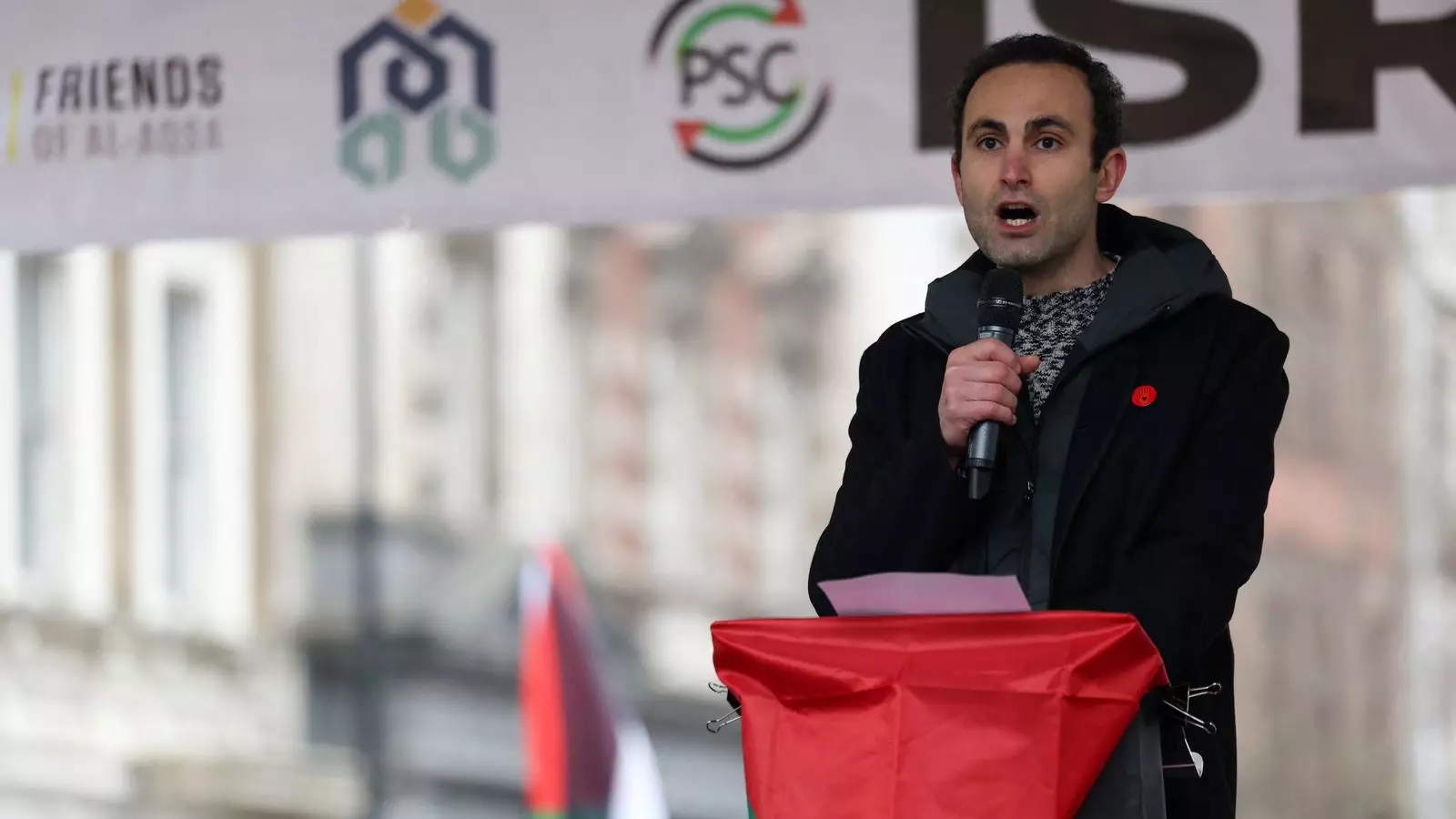In a disconcerting twist to the ongoing discourse surrounding civil liberties, actor Khalid Abdalla’s recent experience with the Metropolitan Police sheds light on the unsettling climate for political protest in the UK. This situation isn’t just an isolated case involving a public figure—it signals a broader unsettling trend where the right to voice dissent is increasingly scrutinized and stifled. Abdalla, famed for his role in “The Crown,” has been summoned for questioning regarding his participation in a pro-Palestinian protest held on January 18. What does this imply for ordinary citizens who wish to express their opinions about monumental geopolitical issues?
The protest in question, organized by the Palestine Solidarity Campaign, witnessed participation from various demographics, including Stephen Kapos, an 87-year-old Holocaust survivor. When those who survived the horrors of war find themselves scrutinized simply for exercising their constitutional rights, it should concern every citizen. It’s not merely an attack on individual rights but a systematic effort to delegitimize dissent. The core tenet of a healthy democracy lies in the ability of its citizens to challenge the status quo without fear of retaliation or legal repercussions.
Protesting is historically seen as a vital component of democratic societies. From the suffragettes in the UK who fought for women’s voting rights to civil rights movements rallying against systemic racism, these acts of dissent have invariably shaped contemporary society and government policies. Abdalla’s situation places the UK in a troubling historical parallel where dissent is met not with dialogue but with legal threats.
This recent summoning by the Metropolitan Police serves as a reminder of the tensions between maintaining public order and upholding individual rights. The police’s justification centers around alleged breaches of the Public Order Act, a law that should not serve as a bludgeoning tool against grassroots movements. With vague definitions of “public order” becoming an excuse for suppressing dissent, we find ourselves traversing dangerous terrain.
Abdalla’s reluctance to comment further on the legal ramifications of participating in the protest underscores a chilling effect that deters many from participating in similar actions. When public figures are summoned by law enforcement, it sends ripples through society, stifling open discourse and dissenting voices, particularly among those who lack the resources or public platform to defend themselves.
The ability to speak out on controversial issues is not just a privilege for the wealthy or well-connected but a fundamental right for every citizen. Yet, the fear of police scrutiny creates a barrier that may ultimately silence critical conversations that challenge sociopolitical injustices. Abdalla’s comment that “the right to protest is under attack” resonates powerfully; many are left wondering, at what point do we cross the threshold into an autocratic landscape where protest becomes synonymous with criminality?
Ironically, the current political landscape is mired in polarization, which only exacerbates the struggles of those daring to speak out against perceived injustices. The case of Jeremy Corbyn, who was also subjected to police questioning shortly after the same protest, reveals a troubling reality: dissenting voices across the political spectrum are being subjected to the same scrutiny.
Abdalla’s advocacy for Palestinian rights may not align with everyone’s beliefs, yet it must be recognized that the right to express an opinion should not be conditional upon its popularity. Those who hold controversial viewpoints, especially on international issues, should be encouraged to engage in dialogue, not face state-sanctioned intimidation. The essence of democracy is enriched by diversity and dissent, and pushing back against this fosters a narrow-minded national narrative.
As citizens of a democratic society, we must remain vigilant in defending our rights to assemble and protest. The alarming trends unveiled by the experiences of figures like Khalid Abdalla and Jeremy Corbyn demand collective action and unwavering resistance against unjust policing tactics. It’s imperative to recognize that the very foundation of a democratic society rests on the pillars of free expression and the right to protest.
We must stand in solidarity with those who dare to challenge the status quo. Whether you support or oppose specific political movements, the ongoing erosion of our fundamental rights is a battle that transcends partisan lines. We must advocate for systemic reforms to ensure that the right to protest is preserved, not just for a chosen few but for all citizens, regardless of their stance. As we tread this uncertain path, a united front is not merely a strategy; it is a necessity for the integrity of our democratic ideals.


Leave a Reply